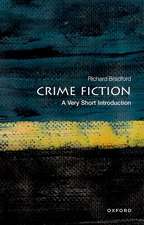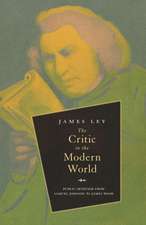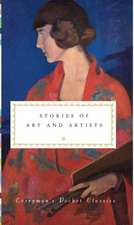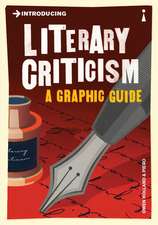Samuel Beckett's German Diaries 1936-1937: Historicizing Modernism
Autor Dr Mark Nixonen Limba Engleză Hardback – 20 apr 2011
Din seria Historicizing Modernism
- 14%
 Preț: 540.31 lei
Preț: 540.31 lei - 30%
 Preț: 600.06 lei
Preț: 600.06 lei - 30%
 Preț: 602.11 lei
Preț: 602.11 lei -
 Preț: 447.39 lei
Preț: 447.39 lei - 30%
 Preț: 715.42 lei
Preț: 715.42 lei - 30%
 Preț: 509.93 lei
Preț: 509.93 lei - 13%
 Preț: 237.84 lei
Preț: 237.84 lei - 22%
 Preț: 259.07 lei
Preț: 259.07 lei - 13%
 Preț: 255.76 lei
Preț: 255.76 lei - 22%
 Preț: 777.06 lei
Preț: 777.06 lei - 22%
 Preț: 257.68 lei
Preț: 257.68 lei - 13%
 Preț: 257.97 lei
Preț: 257.97 lei - 13%
 Preț: 256.12 lei
Preț: 256.12 lei - 22%
 Preț: 258.59 lei
Preț: 258.59 lei - 13%
 Preț: 256.29 lei
Preț: 256.29 lei - 13%
 Preț: 258.42 lei
Preț: 258.42 lei - 30%
 Preț: 716.56 lei
Preț: 716.56 lei - 22%
 Preț: 232.34 lei
Preț: 232.34 lei - 22%
 Preț: 257.32 lei
Preț: 257.32 lei - 13%
 Preț: 228.85 lei
Preț: 228.85 lei - 30%
 Preț: 657.22 lei
Preț: 657.22 lei -
 Preț: 259.07 lei
Preț: 259.07 lei - 13%
 Preț: 258.42 lei
Preț: 258.42 lei - 22%
 Preț: 258.42 lei
Preț: 258.42 lei - 13%
 Preț: 257.03 lei
Preț: 257.03 lei - 30%
 Preț: 717.05 lei
Preț: 717.05 lei - 13%
 Preț: 256.20 lei
Preț: 256.20 lei - 22%
 Preț: 259.25 lei
Preț: 259.25 lei - 30%
 Preț: 773.81 lei
Preț: 773.81 lei -
 Preț: 237.75 lei
Preț: 237.75 lei - 23%
 Preț: 236.27 lei
Preț: 236.27 lei - 13%
 Preț: 257.12 lei
Preț: 257.12 lei
Preț: 774.20 lei
Preț vechi: 1113.15 lei
-30% Nou
Puncte Express: 1161
Preț estimativ în valută:
148.14€ • 155.09$ • 122.58£
148.14€ • 155.09$ • 122.58£
Carte tipărită la comandă
Livrare economică 05-19 aprilie
Preluare comenzi: 021 569.72.76
Specificații
ISBN-13: 9781441152589
ISBN-10: 144115258X
Pagini: 272
Dimensiuni: 156 x 234 x 16 mm
Greutate: 0.54 kg
Ediția:New.
Editura: Bloomsbury Publishing
Colecția Continuum
Seria Historicizing Modernism
Locul publicării:London, United Kingdom
ISBN-10: 144115258X
Pagini: 272
Dimensiuni: 156 x 234 x 16 mm
Greutate: 0.54 kg
Ediția:New.
Editura: Bloomsbury Publishing
Colecția Continuum
Seria Historicizing Modernism
Locul publicării:London, United Kingdom
Caracteristici
The first comprehensive account of Beckett's complex relationship with German culture in the 1930s.
Notă biografică
Mark Nixon is Lecturer in English at the University of Reading, UK, where he is also the Director of the Beckett International Foundation.
Cuprins
Acknowledgments \ List of Abbreviations, Editions Cited and Notes on the Text \ List of Figures \ Introduction \ 1. Beckett's Journey to Germany 1936-1937 \ 2. The German Diaries \ 3. Psychoanalysis, Quietism and the Literary Waste \ 4. Beckett reading German Literature \ 5. Beckett, Nazi Culture and Contemporary German Fiction \ 6. Playing the Scales of Literature: Beckett's 'Notesnatching'\ 7. Beckett's 'Journal of a Melancholic' and Other Writing \ 8. Talking Pictures: Beckett and the Visual Arts \ 9. Clarifiers and Obscurantists \ Conclusion: The threshold of words \ Bibliography \ Appendix A: Beckett's travel itinerary \ Appendix B: Illustrations \ Index
Recenzii
One of the great strengths of Nixon's book is his recourse to manuscript materials in the navigation of densely theoretical problems; the use of historicist methods in tackling questions of form and genre proves a formidable critical combination.
This is the book we had been waiting for, as it dispels the myths surrounding Beckett's German Diaries. With extreme attention to detail, with unrivalled care for context and with penetrating judgment, Mark Nixon gives us a rationale for Beckett's apparently absurd tour of Nazi Germany. Nixon explains why the talking cure of psychoanalysis in London had to be replaced by a Romantic walking cure that passed through the ruins of a culture threatened with extinction. The doomed and melancholy Winterreise was to provide a foundation for the subsequent work and pave the way for a postwar aesthetic of loss and survival.
The six months that Samuel Beckett spent in Germany in 1936-7 were a critical period in his intellectual, creative and emotional development. The diaries that he kept during this trip not only offer unique and invaluable insight into his views on the many works of art that he saw as he travelled through the country, but, as Mark Nixon reveals in this outstanding work of literary scholarship, also gesture towards a new kind of writing that would find its full realization only after the Second World War. The importance of Nixon's study lies, however, not only in its detailed analysis of the diaries themselves, but also in its reflections on Beckett's sustained engagement with German literature, culture and politics more generally. For anyone interested in one of the twentieth century's most important writers, Nixon's book is essential reading.
Named as 'Book of the Week'
Beckett's enthusiasm for Flemish painting, engagement with Goethe, exposure to Nazi racial ideology and censorship...the development of his quietism and of his language scepticism, and his related reservations about hermeneutics, are scrupulously elucidated here, and tantalisingly illustrated from the diary itself... We look forward to Nixon further historicising Beckett.
This is the book we had been waiting for, as it dispels the myths surrounding Beckett's German Diaries. With extreme attention to detail, with unrivalled care for context and with penetrating judgment, Mark Nixon gives us a rationale for Beckett's apparently absurd tour of Nazi Germany. Nixon explains why the talking cure of psychoanalysis in London had to be replaced by a Romantic walking cure that passed through the ruins of a culture threatened with extinction. The doomed and melancholy Winterreise was to provide a foundation for the subsequent work and pave the way for a postwar aesthetic of loss and survival.
The six months that Samuel Beckett spent in Germany in 1936-7 were a critical period in his intellectual, creative and emotional development. The diaries that he kept during this trip not only offer unique and invaluable insight into his views on the many works of art that he saw as he travelled through the country, but, as Mark Nixon reveals in this outstanding work of literary scholarship, also gesture towards a new kind of writing that would find its full realization only after the Second World War. The importance of Nixon's study lies, however, not only in its detailed analysis of the diaries themselves, but also in its reflections on Beckett's sustained engagement with German literature, culture and politics more generally. For anyone interested in one of the twentieth century's most important writers, Nixon's book is essential reading.
Named as 'Book of the Week'
Beckett's enthusiasm for Flemish painting, engagement with Goethe, exposure to Nazi racial ideology and censorship...the development of his quietism and of his language scepticism, and his related reservations about hermeneutics, are scrupulously elucidated here, and tantalisingly illustrated from the diary itself... We look forward to Nixon further historicising Beckett.











